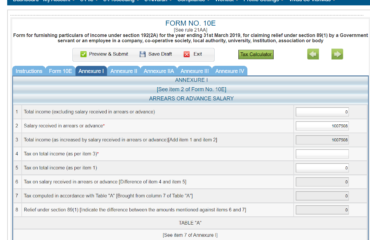In Budget 2020-21 corporate tax slab has changes, New Corporate Tax for FY 2020-21 is benefited to New startup and MSME company. Existing company also gets benefits in the new tax slab which is announced in the FY 2020-21 budget.
Corporation tax is a direct tax imposed on the net income or profit that enterprises make from their businesses. Companies, both public and privately registered in India under the Companies Act 1956, are liable to pay corporation tax. This tax is levied at a specific rate according to the provisions of the Income Tax Act, 1961.
The government proposed to reduce the corporate tax rate from the existing 30-25 per cent (depending on the turnover thresholds) to 22 per cent (effective rate 25.17 per cent, including surcharge and cess) for all the domestic companies, subject to them not availing of a specified list of exemptions. These include, among others, exemptions available to units in special economic zones, deductions for certain scientific research expenditure, additional depreciation available on fresh investments and the losses, if any, attributable to such deductions.
The minimum alternate tax (MAT), introduced to facilitate the taxation of zero-tax companies, will also not be applicable to companies availing of the reduced rate of taxation.
Companies claiming exemptions could continue to avail of them and pay taxes at pre-amended rates, that is, 25-30 per cent. They might opt to pay taxes at lower rates at a future date. However, the option to pay taxes at the reduced rate of 22 per cent, once selected could not be changed. Significantly, where the companies continue to avail of exemptions, the MAT rate has been reduced from 18.5 per cent to 15 per cent.
Any new domestic manufacturing company, incorporated on or after October 1, 2019, is to be allowed to pay corporation tax at the rate of 15% (effective rate 17.01%). No MAT is to be imposed on these companies either.
Dividend Distribution Tax
- Currently, companies are required to pay Dividend Distribution Tax (DDT) on the dividend paid to its shareholders at the rate of 15% plus applicable surcharge and cess in addition to the tax payable by the company on its profits.
- It has been argued that the system of levying DDT results in an increase in tax burden for investors and especially those who are liable to pay tax less than the rate of DDT if the dividend income is included in their income.
- Further, non-availability of credit of DDT to most of the foreign investors in their home country results in reduction of rate of return on equity capital for them. In order to increase the attractiveness of the Indian Equity Market and to provide relief to a large class of investors, I propose to remove the DDT and adopt the classical system of dividend taxation under which the companies would not be required to pay DDT. The dividend shall be taxed only in the hands of the recipients at their applicable rate.
- Further, in order to remove the cascading effect, I also propose to allow a deduction for the dividend received by holding company from its subsidiary. The removal of DDT will lead to estimated annual revenue forgone of `25,000 Crore.



